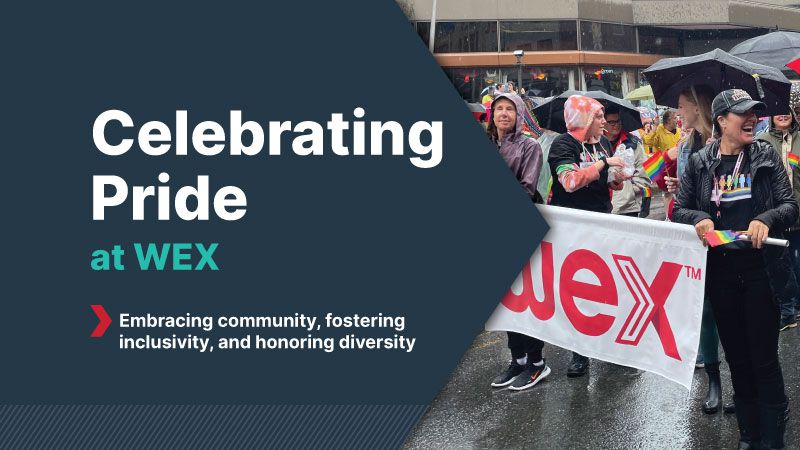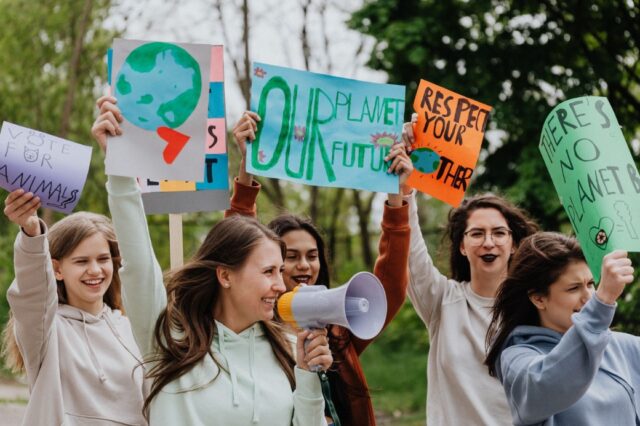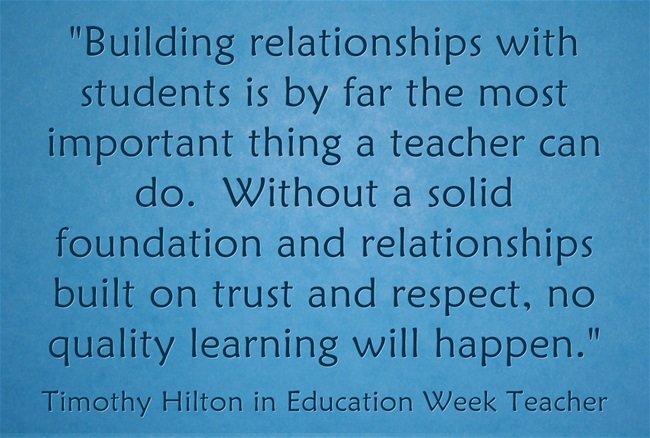Introduction
Community and civic engagement are the cornerstones of a thriving democracy, embodying the spirit of active citizenship. When individuals actively participate in their communities and civic life, they contribute to the betterment of society and help shape the future. In this article, we explore the vital role of community and civic engagement and how it empowers individuals to make a meaningful impact.
Community and civic engagement, rooted in the essence of active citizenship, serve as the bedrock upon which a vibrant democracy is built. When individuals wholeheartedly involve themselves in the life of their communities and actively participate in the civic processes that govern our society, they become the architects of positive change, enriching the tapestry of our shared future. In the following sections, we delve deeper into the profound significance of community and civic engagement and how these actions empower individuals to create a lasting and meaningful impact.
At the heart of community and civic engagement lies the notion of “we the people.” It encapsulates the idea that a democracy is only as strong as the collective will of its citizens to actively shape its course. When individuals take the time to understand the issues affecting their neighborhoods, towns, and cities, and then commit to taking meaningful action, they foster a sense of ownership and responsibility. This sense of ownership not only strengthens communities but also ensures that the government remains accountable to the people it serves.
Community engagement, in particular, is a testament to the power of local connections. It involves citizens coming together to address shared concerns, from improving schools to enhancing public safety or revitalizing a neighborhood park. Through community engagement, individuals forge bonds, build trust, and develop a sense of belonging. In the process, they tap into a wellspring of collective knowledge, creativity, and resources that can spark transformative change.
Civic engagement, on the other hand, extends the concept of active citizenship to the broader society. It encompasses activities such as voting, attending town hall meetings, volunteering for political campaigns, or advocating for policy changes. Civic engagement ensures that the voices of individuals are heard and that their concerns are considered in the decision-making processes that impact society as a whole. It empowers people to be not just passive observers of democracy but active participants who drive progress.
Furthermore, community and civic engagement foster a culture of empathy and social responsibility. When individuals engage with diverse groups and interact with people of different backgrounds and perspectives, they gain a deeper understanding of the complex issues facing their society. This heightened awareness often leads to a greater commitment to social justice, equity, and inclusivity, driving efforts to address systemic challenges and promote positive social change.
In conclusion, community and civic engagement are not just optional activities in a democracy; they are the lifeblood of a thriving society. By participating actively in their communities and civic life, individuals contribute to the greater good, hold institutions accountable, and work collectively to shape a more equitable and prosperous future for all. As we explore the vital role of community and civic engagement, we recognize that it empowers individuals to become the architects of a brighter, more inclusive, and just society, where the spirit of active citizenship is celebrated and cherished.
For additional details, consider exploring the related content available here Civic Engagement | Youth.gov
Active citizenship goes beyond mere voting; it encompasses a wide range of actions individuals can take to participate in the civic life of their communities and nations. This includes volunteering, attending public meetings, joining advocacy groups, and actively voicing concerns about local and national issues.
Active citizenship represents a profound commitment to democratic values and the well-being of society that extends far beyond the act of casting a ballot during elections. It encapsulates a rich tapestry of actions through which individuals engage with the civic life of their communities and nations, effectively becoming the bedrock upon which the edifice of democracy stands.
At its core, active citizenship is a call to action, a recognition that a thriving democracy requires the collective engagement of its citizens. It is a mosaic of meaningful contributions, often starting with something as simple as volunteering. Whether it’s dedicating time to a local food bank, tutoring students in underserved schools, or participating in neighborhood clean-up initiatives, these actions serve as the building blocks of stronger, more compassionate communities.
But active citizenship doesn’t stop there. It’s about being an informed and engaged participant in the democratic process. This involves attending public meetings to stay informed about local policies and issues that impact our lives daily. It’s about joining advocacy groups that champion causes close to our hearts, channeling our passions and concerns into collective movements for change. Through these efforts, citizens can help shape the direction of their communities and nations, influencing policy decisions that reflect the needs and values of the people.
Equally significant is the role of active citizenship in amplifying voices. It empowers individuals to voice concerns, both big and small, about local and national issues. By actively engaging in dialogue with elected officials, participating in public forums, or utilizing social media platforms to express viewpoints, citizens play a pivotal role in holding their leaders accountable and driving change. This aspect of active citizenship is not just an exercise of rights but a demonstration of the responsibilities that come with being a member of a democratic society.
Furthermore, active citizenship promotes a sense of belonging and social cohesion. It fosters connections within communities, bridging divides, and creating spaces for dialogue and understanding. Through collective efforts to address shared challenges, individuals find common ground and build the social fabric that binds societies together.
In essence, active citizenship is the heartbeat of a thriving democracy. It transforms passive observers into empowered participants, ensuring that the principles of liberty, justice, and equality are not abstract concepts but lived experiences. It’s a testament to the enduring power of individuals to shape the destiny of their communities and nations, proving that the strength of democracy lies in the hands of those who actively contribute to it. So, let us embrace active citizenship as a solemn duty and a source of empowerment, recognizing that our actions, both big and small, have the potential to shape a brighter future for all.
For a comprehensive look at this subject, we invite you to read more on this dedicated page: Civic Engagement | Youth.gov

Active citizenship empowers communities. When individuals engage in local initiatives, they become stakeholders in the well-being of their neighborhoods. By working together on projects such as community gardens, neighborhood watch programs, or disaster relief efforts, communities become more resilient and connected.
Active citizenship is not just a personal endeavor; it’s a powerful force that can transform the very fabric of communities. At its core, it’s about individuals taking responsibility for the well-being of their neighborhoods and beyond. When people actively engage in local initiatives, they transcend the role of passive residents and become true stakeholders in their communities’ growth and prosperity.
One remarkable aspect of active citizenship is its ability to foster a sense of belonging and connection. Through collaborative efforts on projects like community gardens, residents come together, share their skills, and cultivate not only plants but also a sense of unity. These green spaces not only beautify neighborhoods but also serve as meeting places where friendships are forged, knowledge is exchanged, and a shared sense of purpose is cultivated.
Neighborhood watch programs exemplify another facet of active citizenship. By banding together to ensure the safety and security of their community, residents not only deter crime but also build trust among themselves. The act of looking out for one another creates bonds that extend beyond mere vigilance; it creates a collective identity where everyone plays a role in safeguarding their shared home.
In times of crisis, the strength of active citizenship truly shines. Disaster relief efforts, often organized and executed by passionate volunteers, demonstrate the resilience and compassion of communities. When disaster strikes, these individuals rise to the occasion, providing immediate aid and comfort to those affected. The sense of solidarity and support generated during these trying times is a testament to the power of collective action.
Moreover, active citizenship is not limited to local initiatives alone. It extends to participating in the democratic process, advocating for change at the municipal or national level, and championing causes that resonate with one’s values. By doing so, individuals can influence policies and decisions that have far-reaching effects on their communities and society as a whole.
In essence, active citizenship is the catalyst for positive change on both micro and macro levels. It empowers individuals to be architects of their own communities, fostering resilience, connection, and a shared vision of a brighter future. As more people embrace the concept of active citizenship, the ripple effects of their actions will continue to strengthen the very foundations of society, ensuring that communities thrive and flourish for generations to come.
Don’t stop here; you can continue your exploration by following this link for more details: Why is Community Engagement Important? | Granicus

Civic engagement promotes inclusivity by giving everyone a voice. It ensures that diverse perspectives are considered in decision-making processes, leading to more equitable and representative outcomes. Engaging in dialogue and collaboration across various backgrounds and beliefs is a fundamental aspect of active citizenship.
Civic engagement, at its core, serves as a powerful catalyst for fostering inclusivity and strengthening the very fabric of democratic societies. It goes beyond merely allowing everyone a voice; it actively encourages and empowers individuals from all walks of life to participate in the decision-making processes that shape their communities and nations.
One of the most compelling aspects of civic engagement is its capacity to embrace and celebrate diversity. In a world marked by an ever-expanding array of backgrounds, cultures, and perspectives, the importance of considering this diversity in decision-making cannot be overstated. When individuals from different walks of life come together to discuss, deliberate, and collaborate, it results in policies and initiatives that are not only more comprehensive but also more equitable.
Furthermore, civic engagement acts as a bridge across the divides that may exist within a society. It provides a space where people with varying beliefs, ideologies, and values can engage in constructive dialogue. Through these interactions, individuals learn to understand one another better, discover common ground, and develop a deeper sense of empathy and tolerance. In essence, it helps break down barriers, dispelling misconceptions and stereotypes that can fuel divisiveness.
Active citizenship, which is nurtured through civic engagement, encourages individuals to take ownership of their communities and the issues that matter most to them. It’s not merely a passive observation of governance; it’s an active and responsible participation in the collective decision-making process. When citizens are engaged in the shaping of policies and priorities, they feel a stronger sense of belonging and connection to their society, which, in turn, strengthens social cohesion.
Moreover, civic engagement is a cornerstone of a well-functioning democracy. By ensuring that a broad spectrum of voices is heard and considered, it safeguards against the concentration of power and the risk of marginalized groups being left behind. It promotes transparency and accountability in governance, reinforcing the principles of a just and representative society.
In a world marked by increasing complexity and interconnectedness, civic engagement emerges as a vital force for progress and harmony. It fosters inclusivity, encourages dialogue, and empowers individuals to actively participate in shaping their communities and nations. Embracing and promoting civic engagement is not just a matter of good governance; it’s a fundamental step towards a more equitable, representative, and harmonious society where everyone’s voice matters.
Explore this link for a more extensive examination of the topic: Democratic Engagement

Active citizens play a pivotal role in addressing local issues. They bring attention to problems, propose solutions, and hold local authorities accountable. Whether it’s advocating for improved public schools, cleaner parks, or safer streets, community and civic engagement serve as catalysts for positive change at the grassroots level.
Active citizens play a pivotal role in addressing local issues, serving as the lifeblood of vibrant, thriving communities. Their involvement goes far beyond the act of voting; it involves a deep commitment to making their neighborhoods better places to live. Whether it’s advocating for improved public schools, cleaner parks, or safer streets, community and civic engagement serve as catalysts for positive change at the grassroots level.
Enhancing Education: Active citizens recognize that the future of their community depends on its education system. They actively participate in parent-teacher associations, school board meetings, and local education initiatives. By doing so, they ensure that schools have the necessary resources and that the curriculum meets the needs of students, ultimately shaping the next generation.
Environmental Stewardship: In an era of increasing environmental concerns, active citizens take it upon themselves to protect the environment. They engage in local clean-up efforts, advocate for sustainable practices, and work with local authorities to ensure that parks and natural areas remain clean and accessible for everyone to enjoy.
Public Safety: Citizens who actively engage with their communities often play a pivotal role in promoting public safety. They participate in neighborhood watch programs, collaborate with law enforcement, and work together to reduce crime rates and make streets safer for everyone.
Community Building: Active citizens understand the importance of fostering a sense of belonging and social cohesion within their neighborhoods. They organize events, establish community centers, and create spaces where residents can come together to share ideas and build connections.
Supporting Local Businesses: Vibrant communities depend on thriving local businesses. Active citizens actively support local entrepreneurs, shop locally, and encourage policies that promote economic development at the neighborhood level.
Advocating for Equity: In today’s diverse societies, active citizens are at the forefront of advocating for social justice and equity. They address issues of inequality, discrimination, and lack of access to essential services, working to ensure that everyone in their community has equal opportunities and rights.
Accountability and Transparency: Active citizens hold local authorities accountable for their actions and decisions. They attend city council meetings, participate in public hearings, and advocate for transparency in government processes, ensuring that the community’s interests are well-represented.
Disaster Preparedness: In times of crisis, such as natural disasters or public health emergencies, active citizens play a crucial role in disaster preparedness and response efforts. They organize community resilience programs, share resources, and support their neighbors in times of need.
Mentoring and Youth Engagement: Active citizens often take on mentoring roles, guiding and inspiring the younger generation. They engage with youth organizations, offer mentorship opportunities, and help shape the future leaders of their community.
In essence, active citizens are the backbone of local democracy and progress. Their passion, dedication, and willingness to take action result in tangible improvements in the quality of life for everyone in their communities. They exemplify the idea that positive change often starts at home and that the collective efforts of engaged citizens can transform neighborhoods into thriving, inclusive, and prosperous places to live.
To delve further into this matter, we encourage you to check out the additional resources provided here: Global citizenship education: topics and learning objectives

Democracy thrives when citizens actively participate. Voting in elections is a fundamental aspect of civic engagement, but it is complemented by actions like contacting elected officials, attending town hall meetings, and advocating for policies that align with community values. These actions reinforce the democratic process and ensure that government remains accountable to the people.
Democracy thrives when citizens actively participate. Voting in elections is a fundamental aspect of civic engagement, but it is complemented by actions like contacting elected officials, attending town hall meetings, and advocating for policies that align with community values. These actions reinforce the democratic process and ensure that government remains accountable to the people.
Moreover, fostering a robust democratic society requires a multifaceted approach beyond individual actions. Here are some additional thoughts to extend this idea:
Educating the Citizenry: A well-informed citizenry is essential for the functioning of democracy. Encouraging education and critical thinking equips individuals with the knowledge and skills to make informed decisions and engage in meaningful dialogue about public issues.
Media Literacy: In an era of digital information, understanding how to discern credible sources from misinformation is crucial. Promoting media literacy helps citizens navigate the vast landscape of information and contribute to informed discussions.
Community Involvement: Strong communities are the backbone of a healthy democracy. Encouraging local engagement, such as volunteering, participating in neighborhood associations, or supporting local businesses, can create a sense of shared responsibility and solidarity.
Supporting Inclusivity: Democracy should be inclusive and representative of all voices within a society. Efforts to address barriers to participation, such as ensuring equitable access to voting, reducing gerrymandering, and promoting diversity in leadership, contribute to a more robust democracy.
Civic Education in Schools: Incorporating civic education into school curricula from an early age can instill a sense of civic responsibility and a deeper understanding of the democratic process among future generations.
Engaging Youth: Encouraging young people to get involved in civic activities and providing opportunities for them to voice their concerns helps ensure that the democratic system remains relevant and adaptive to changing societal needs.
Public Discourse: Encouraging civil and constructive public discourse allows for the exchange of diverse viewpoints and the development of well-rounded policies that take into account the needs and perspectives of various segments of the population.
In summary, a thriving democracy relies on a combination of individual engagement, community involvement, education, and efforts to make the democratic process more inclusive and accessible. It is a collective responsibility to uphold and strengthen the democratic values that underpin our society.
To delve further into this matter, we encourage you to check out the additional resources provided here: Civic Engagement – What is civic engagement?

Actively engaged citizens build stronger, more resilient communities. They foster a sense of belonging and shared responsibility, leading to increased community cohesion.
Actively engaged citizens build stronger, more resilient communities by serving as the backbone of local progress and development. Their involvement goes beyond passive observation, as they actively participate in community affairs, volunteer their time and skills, and contribute to the collective well-being.
One key aspect of engaged citizenship is the sense of belonging it instills. When individuals are actively involved in community activities, they develop a stronger connection to their neighborhoods and the people who live there. This sense of belonging transcends geographical boundaries, creating a shared identity and a feeling of unity among residents. In turn, this fosters a sense of pride in one’s community and a commitment to its improvement.
Engaged citizens also play a pivotal role in promoting shared responsibility. By taking an active interest in local governance, social issues, and community projects, they become stakeholders in the decision-making process. This sense of ownership drives them to work collectively to address challenges and seize opportunities. They recognize that the fate of their community is intertwined with their own, encouraging a shared commitment to tackling problems and ensuring a brighter future for all.
Furthermore, active engagement often leads to increased community cohesion. When individuals from diverse backgrounds come together to work toward common goals, they bridge gaps in understanding, build trust, and break down barriers that may have divided the community in the past. This enhanced cohesion not only strengthens the social fabric of the community but also facilitates more effective problem-solving and collaboration.
Moreover, actively engaged citizens inspire others to join in community efforts. Their enthusiasm and dedication serve as powerful examples, encouraging fellow residents to become active participants in community initiatives. This ripple effect can lead to a groundswell of involvement, magnifying the positive impact of engaged citizenship.
In summary, actively engaged citizens contribute to the vitality of their communities by fostering a sense of belonging, promoting shared responsibility, and enhancing community cohesion. Their commitment to local improvement is a driving force behind the resilience and strength of communities, ultimately creating environments where residents thrive and work together to overcome challenges.
To expand your knowledge on this subject, make sure to read on at this location: Civic Engagement – What is civic engagement?

Governments are more responsive to the needs and preferences of their constituents when citizens are actively engaged. Public officials are more likely to address concerns raised by engaged citizens and work towards solutions that benefit the community.
Governments are more responsive to the needs and preferences of their constituents when citizens are actively engaged. Public officials are more likely to address concerns raised by engaged citizens and work towards solutions that benefit the community. This dynamic not only strengthens the bond between the government and the governed but also fosters a sense of accountability. When citizens participate in civic activities, such as voting, attending town hall meetings, or joining advocacy groups, they become stakeholders in the decision-making process. As a result, policies and initiatives are more likely to align with the actual needs and aspirations of the people. Furthermore, active citizen engagement serves as a check on potential abuses of power, ensuring that the government operates in a transparent and responsible manner. It’s a cornerstone of democracy, empowering individuals to shape their collective destiny and build a society that reflects their values and aspirations.
To expand your knowledge on this subject, make sure to read on at this location: The need for civic education in 21st-century schools | Brookings

Civic and community engagement create opportunities for individuals to connect with others who share their interests and values. These social connections not only enhance personal well-being but also create a sense of collective purpose.
Civic and community engagement play a pivotal role in forging meaningful connections among individuals who, through shared interests and values, become the building blocks of thriving communities. These social bonds are not only integral to personal well-being but also hold the power to inspire a sense of collective purpose that can transform society in profound ways.
At the heart of civic and community engagement is the idea that individuals can find a sense of belonging and fulfillment by actively participating in activities, projects, and initiatives that align with their passions and convictions. When like-minded people come together to work towards a common goal or address a shared concern, a sense of camaraderie emerges. This sense of belonging fosters friendships, networks, and support systems that extend beyond the immediate cause.
These social connections often ripple outward, creating a broader sense of community and social cohesion. As individuals engage with one another, they build trust, empathy, and a deeper understanding of the diverse perspectives within their community. This, in turn, promotes tolerance and inclusivity, helping to bridge divides and strengthen the fabric of society.
Moreover, civic and community engagement give rise to a powerful sense of collective purpose. When people collaborate to effect positive change, they become part of something greater than themselves. This shared sense of mission can inspire individuals to overcome challenges, persevere through adversity, and contribute their time, skills, and resources to advance common objectives.
The collective purpose that arises from civic engagement can lead to transformative social impacts. Communities working together can drive meaningful change, whether it’s advocating for policy reforms, addressing environmental issues, or tackling local challenges like poverty or education disparities. This collective action amplifies the potential for positive societal transformation.
In summary, civic and community engagement are not just about individual participation; they are about forging connections and fostering a sense of collective purpose that can elevate personal well-being and drive positive change on a broader scale. These activities empower individuals to make a difference in their communities and contribute to the greater good, highlighting the profound impact that engaged citizens can have on society.
For additional details, consider exploring the related content available here Does Culture Make a Better Citizen? Exploring the Relationship …

Active citizenship empowers individuals to effect change. It enables them to address issues they are passionate about and make a tangible impact in their communities.
Active citizenship empowers individuals to effect change. It enables them to address issues they are passionate about and make a tangible impact in their communities. This involvement not only strengthens the democratic fabric of society but also has far-reaching implications for personal growth, social cohesion, and the overall betterment of the world we live in.
When individuals actively engage in the civic and social issues that matter to them, they become drivers of positive change. They move beyond passive observers to active participants in the shaping of their communities and societies. Through volunteering, advocacy, or even running for public office, active citizens lend their voices and energy to critical causes, whether it’s environmental conservation, social justice, education, or public health.
Active citizenship is not just about addressing problems but also about building stronger, more connected communities. It fosters a sense of belonging and shared purpose, as people come together to collaborate on projects and initiatives that improve the lives of those around them. This sense of community not only enhances social bonds but also contributes to a more vibrant and resilient society.
Furthermore, active citizenship serves as a powerful tool for personal development. Engaging in civic activities hones skills such as leadership, communication, problem-solving, and empathy. It exposes individuals to diverse perspectives and challenges them to think critically and adapt to changing circumstances. These experiences not only benefit the individual but also create a more skilled and informed citizenry.
On a broader scale, active citizenship is essential for the functioning of democratic societies. It holds governments and institutions accountable and ensures that the needs and aspirations of the people are considered in decision-making processes. It reinforces the idea that power belongs to the people and that a participatory democracy thrives when its citizens actively contribute to the common good.
Moreover, active citizenship is a global phenomenon with the potential to address pressing global challenges, such as climate change, inequality, and public health crises. In an increasingly interconnected world, individuals who are informed, engaged, and motivated to make a difference can drive international collaboration and advocate for solutions that transcend borders.
In conclusion, active citizenship is not just a civic duty; it’s a powerful force for change and progress. It empowers individuals to shape their communities, enhances personal growth, and strengthens the foundations of democracy. As we navigate complex societal issues, the active engagement of citizens remains a fundamental driver of positive transformation, ensuring that we collectively build a brighter future for all.
If you’d like to dive deeper into this subject, there’s more to discover on this page: Civic Engagement | Youth.gov

Engaging in civic activities fosters a deeper understanding of societal issues and the political process. It promotes civic education, encouraging individuals to stay informed and take action on matters of importance.
Engaging in civic activities goes beyond merely scratching the surface of societal issues and the political process. It’s a gateway to a profound understanding that can transform individuals into informed and active citizens. By participating in civic activities, people not only learn about the intricacies of their society but also become part of the solution.
Civic engagement serves as an invaluable form of civic education. It exposes individuals to a diverse range of perspectives and challenges them to think critically about complex issues. Through interactions with fellow citizens, they gain insight into the lived experiences and concerns of others, fostering empathy and a broader worldview.
Moreover, active civic involvement encourages individuals to stay consistently informed. In an era of information overload, civic engagement acts as a compass, guiding people towards reliable sources and helping them distinguish between fact and misinformation. It promotes media literacy and critical thinking skills, empowering citizens to make well-informed decisions.
But civic engagement is more than just learning and staying informed; it’s about taking action. It empowers individuals to translate their understanding and passion into tangible contributions to society. Whether through volunteering, advocacy, or community organizing, active citizens play an essential role in shaping policies and addressing societal challenges.
Furthermore, civic engagement nurtures a sense of ownership over one’s community and country. It instills the belief that individual actions can have a meaningful impact on the collective well-being. This sense of agency inspires people to participate in the democratic process by voting, running for office, or engaging in public discourse.
In essence, engaging in civic activities is not a passive endeavor; it’s an active commitment to building a better society. It deepens understanding, fuels continuous learning, and empowers individuals to be proactive agents of change in their communities and the world at large. By fostering civic engagement, we pave the way for a more informed, compassionate, and participatory society.
For additional details, consider exploring the related content available here Civic Engagement | Youth.gov

While community and civic engagement are essential, they are not without challenges. Barriers such as time constraints, limited access to resources, and apathy can hinder participation. However, these challenges can be overcome through education, awareness campaigns, and community support.
Encouraging active citizenship requires fostering a culture of civic responsibility. This can be achieved through schools, community organizations, and media outlets that emphasize the importance of participation in civic life. Additionally, providing accessible avenues for engagement, such as digital platforms and volunteer opportunities, can make it easier for individuals to get involved.
Should you desire more in-depth information, it’s available for your perusal on this page: Teaching Civic Engagement: From Student to Active Citizen

Conclusion
Community and civic engagement are not passive endeavors but active commitments to shaping the world around us. When individuals embrace their roles as active citizens, they contribute to stronger communities, responsive governments, and a more inclusive democracy. In this way, active citizenship becomes a powerful force for positive change, one that empowers individuals to make a lasting impact on the world they share with their neighbors and fellow citizens.
Community and civic engagement represent far more than mere passive involvement; they embody the essence of active commitments to the transformation of the world that surrounds us. In the tapestry of our interconnected lives, individuals who wholeheartedly embrace their roles as active citizens emerge as the driving forces behind the construction of resilient communities, responsive governments, and a democracy that thrives on inclusivity and accountability. This essay delves into the multifaceted nature of active citizenship, underscoring its potential as an influential catalyst for positive change, granting individuals the agency to forge an indelible imprint on the shared world they inhabit alongside their neighbors and fellow citizens.
At its core, active citizenship is an invitation to participation—a summons for individuals to become co-authors of their communities’ narratives. This participatory spirit infuses vigor into the social fabric, fostering a sense of shared purpose and collective responsibility. When people actively engage with their communities, they not only become aware of the issues that require attention but also take an active role in addressing them. This sense of involvement not only bolsters community cohesion but also creates a ripple effect, inspiring others to join in the pursuit of shared goals.
Moreover, active citizenship breathes life into the democratic machinery. Responsive governments and accountable institutions are the natural byproducts of an engaged citizenry. When individuals actively participate in civic processes, whether by casting their votes, attending public meetings, or advocating for policies that reflect their values, they hold the keys to a more transparent and responsive government. This synergy between engaged citizens and accountable institutions fortifies the foundation of democracy, ensuring that the government remains a true representation of the people it serves.
Active citizenship transcends borders and boundaries, resonating on a global scale. As individuals from diverse backgrounds and perspectives unite in their commitment to positive change, they break down barriers, foster intercultural understanding, and create bridges of collaboration. In a world grappling with complex global challenges, such as climate change, human rights abuses, and health crises, active citizenship becomes an indispensable force for collective action, driving international cooperation and sustainable solutions.
Furthermore, active citizenship ignites a sense of empowerment, instilling the belief that individuals possess the agency to make a lasting impact. When people see the tangible results of their collective efforts, whether it’s a cleaner neighborhood park, a more responsive local government, or the enactment of equitable policies, they are inspired to continue their journey as active citizens. This empowerment not only enriches the lives of individuals but also strengthens the social fabric, fostering a sense of hope and optimism for the future.
In conclusion, active citizenship transcends passivity and transforms individuals into architects of positive change. As citizens embrace their roles as active participants in their communities and civic life, they become the driving forces behind stronger communities, responsive governments, and a more inclusive democracy. In this collective endeavor, active citizenship emerges as a powerful force that empowers individuals to leave an enduring legacy on the world they share with their neighbors and fellow citizens. It is a reminder that, when individuals come together with a shared purpose and a commitment to progress, they have the capacity to create a world that is more just, equitable, and filled with opportunity for all.
Looking for more insights? You’ll find them right here in our extended coverage: Civic Engagement – What is civic engagement?
More links
To expand your knowledge on this subject, make sure to read on at this location: Civic Engagement | Youth.gov
